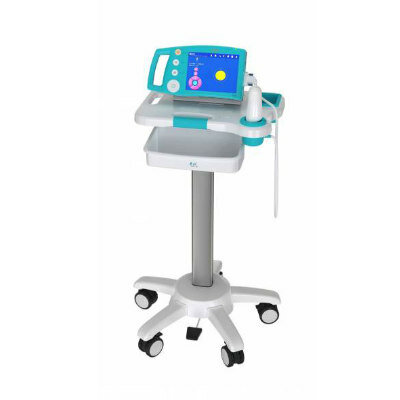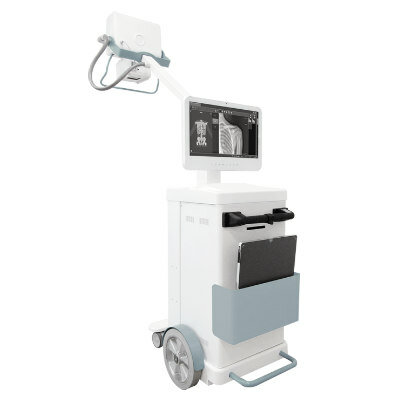Novel PET Imaging Procedure to Enable Earlier Diagnosis of Cancer, Heart Disease, and Dementia
|
By MedImaging International staff writers Posted on 23 Nov 2023 |

In the field of medical diagnosis, imaging technologies such as computed tomography (CT) and positron emission tomography (PET) play a crucial role. Now, an international research group has developed novel approaches for medical imaging that could speed up disease diagnosis, improve understanding of various illnesses, and enable more precise localization.
Researchers at the University of Lucerne (Lucerne, Switzerland) have developed a technique that leverages PET imaging based on genomic changes in the human body. This innovative approach holds promise for the early detection of a range of conditions including cancer, heart disease, and dementia. The key lies in the application of genomic information, which has been a long-sought goal for the early detection of various illnesses. However, the challenge has been in converting genomic discoveries into practical diagnostic tools like imaging tests. The researchers' introduction of the "Imageable Genome" concept offers a solution to this issue.
The Imageable Genome encompasses the segment of human DNA whose expression patterns can be visualized and monitored through medical imaging. These patterns shift with the development and progression of almost every disease. To chart the Imageable Genome, the researchers developed novel methods that integrate big data, genomics, and medical imaging. Their initial step involved sifting through extensive medical literature, involving millions of publications, to identify each gene within the Imageable Genome. This task was accomplished by combining human expertise and artificial intelligence to thoroughly analyze and process the entire published medical literature.
Subsequently, the team explored the potential of the Imageable Genome in creating new diagnostic tests for human diseases. Their investigation revealed several new testing opportunities that could enhance the diagnosis, localization, and treatment of various diseases, particularly in the fields of neurology, cardiology, and oncology. The final phase involved identifying the most suitable imaging tests to implement this novel method effectively, aiming to deliver real benefits to patients. Through this approach, the researchers identified innovative imaging tests for a range of conditions including Alzheimer’s disease, bipolar disorder, schizophrenia, coronary heart disease, various types of cardiomyopathy, and several tumors.
"We see the Imageable Genome as a key with which new findings from genomics can be translated into imaging procedures," said Prof Dr. Martin Walter, titular professor of medical sciences at the University of Lucerne and specialist in nuclear medicine at the Hirslanden Klinik St. Anna, who led the research group. "With this key, we see great potential for further medical research and innovations in the field of big data and artificial intelligence."
Related Links:
University of Lucerne
Latest General/Advanced Imaging News
- New AI Method Captures Uncertainty in Medical Images
- CT Coronary Angiography Reduces Need for Invasive Tests to Diagnose Coronary Artery Disease
- Novel Blood Test Could Reduce Need for PET Imaging of Patients with Alzheimer’s
- CT-Based Deep Learning Algorithm Accurately Differentiates Benign From Malignant Vertebral Fractures
- Minimally Invasive Procedure Could Help Patients Avoid Thyroid Surgery
- Self-Driving Mobile C-Arm Reduces Imaging Time during Surgery
- AR Application Turns Medical Scans Into Holograms for Assistance in Surgical Planning
- Imaging Technology Provides Ground-Breaking New Approach for Diagnosing and Treating Bowel Cancer
- CT Coronary Calcium Scoring Predicts Heart Attacks and Strokes
- AI Model Detects 90% of Lymphatic Cancer Cases from PET and CT Images
- Breakthrough Technology Revolutionizes Breast Imaging
- State-Of-The-Art System Enhances Accuracy of Image-Guided Diagnostic and Interventional Procedures
- Catheter-Based Device with New Cardiovascular Imaging Approach Offers Unprecedented View of Dangerous Plaques
- AI Model Draws Maps to Accurately Identify Tumors and Diseases in Medical Images
- AI-Enabled CT System Provides More Accurate and Reliable Imaging Results
- Routine Chest CT Exams Can Identify Patients at Risk for Cardiovascular Disease
Channels
Radiography
view channel
Novel Breast Imaging System Proves As Effective As Mammography
Breast cancer remains the most frequently diagnosed cancer among women. It is projected that one in eight women will be diagnosed with breast cancer during her lifetime, and one in 42 women who turn 50... Read more
AI Assistance Improves Breast-Cancer Screening by Reducing False Positives
Radiologists typically detect one case of cancer for every 200 mammograms reviewed. However, these evaluations often result in false positives, leading to unnecessary patient recalls for additional testing,... Read moreMRI
view channel
PET/MRI Improves Diagnostic Accuracy for Prostate Cancer Patients
The Prostate Imaging Reporting and Data System (PI-RADS) is a five-point scale to assess potential prostate cancer in MR images. PI-RADS category 3 which offers an unclear suggestion of clinically significant... Read more
Next Generation MR-Guided Focused Ultrasound Ushers In Future of Incisionless Neurosurgery
Essential tremor, often called familial, idiopathic, or benign tremor, leads to uncontrollable shaking that significantly affects a person’s life. When traditional medications do not alleviate symptoms,... Read more
Two-Part MRI Scan Detects Prostate Cancer More Quickly without Compromising Diagnostic Quality
Prostate cancer ranks as the most prevalent cancer among men. Over the last decade, the introduction of MRI scans has significantly transformed the diagnosis process, marking the most substantial advancement... Read moreUltrasound
view channel
Deep Learning Advances Super-Resolution Ultrasound Imaging
Ultrasound localization microscopy (ULM) is an advanced imaging technique that offers high-resolution visualization of microvascular structures. It employs microbubbles, FDA-approved contrast agents, injected... Read more
Novel Ultrasound-Launched Targeted Nanoparticle Eliminates Biofilm and Bacterial Infection
Biofilms, formed by bacteria aggregating into dense communities for protection against harsh environmental conditions, are a significant contributor to various infectious diseases. Biofilms frequently... Read moreNuclear Medicine
view channel
New SPECT/CT Technique Could Change Imaging Practices and Increase Patient Access
The development of lead-212 (212Pb)-PSMA–based targeted alpha therapy (TAT) is garnering significant interest in treating patients with metastatic castration-resistant prostate cancer. The imaging of 212Pb,... Read moreNew Radiotheranostic System Detects and Treats Ovarian Cancer Noninvasively
Ovarian cancer is the most lethal gynecological cancer, with less than a 30% five-year survival rate for those diagnosed in late stages. Despite surgery and platinum-based chemotherapy being the standard... Read more
AI System Automatically and Reliably Detects Cardiac Amyloidosis Using Scintigraphy Imaging
Cardiac amyloidosis, a condition characterized by the buildup of abnormal protein deposits (amyloids) in the heart muscle, severely affects heart function and can lead to heart failure or death without... Read moreImaging IT
view channel
New Google Cloud Medical Imaging Suite Makes Imaging Healthcare Data More Accessible
Medical imaging is a critical tool used to diagnose patients, and there are billions of medical images scanned globally each year. Imaging data accounts for about 90% of all healthcare data1 and, until... Read more
Global AI in Medical Diagnostics Market to Be Driven by Demand for Image Recognition in Radiology
The global artificial intelligence (AI) in medical diagnostics market is expanding with early disease detection being one of its key applications and image recognition becoming a compelling consumer proposition... Read moreIndustry News
view channel
Bayer and Google Partner on New AI Product for Radiologists
Medical imaging data comprises around 90% of all healthcare data, and it is a highly complex and rich clinical data modality and serves as a vital tool for diagnosing patients. Each year, billions of medical... Read more





















